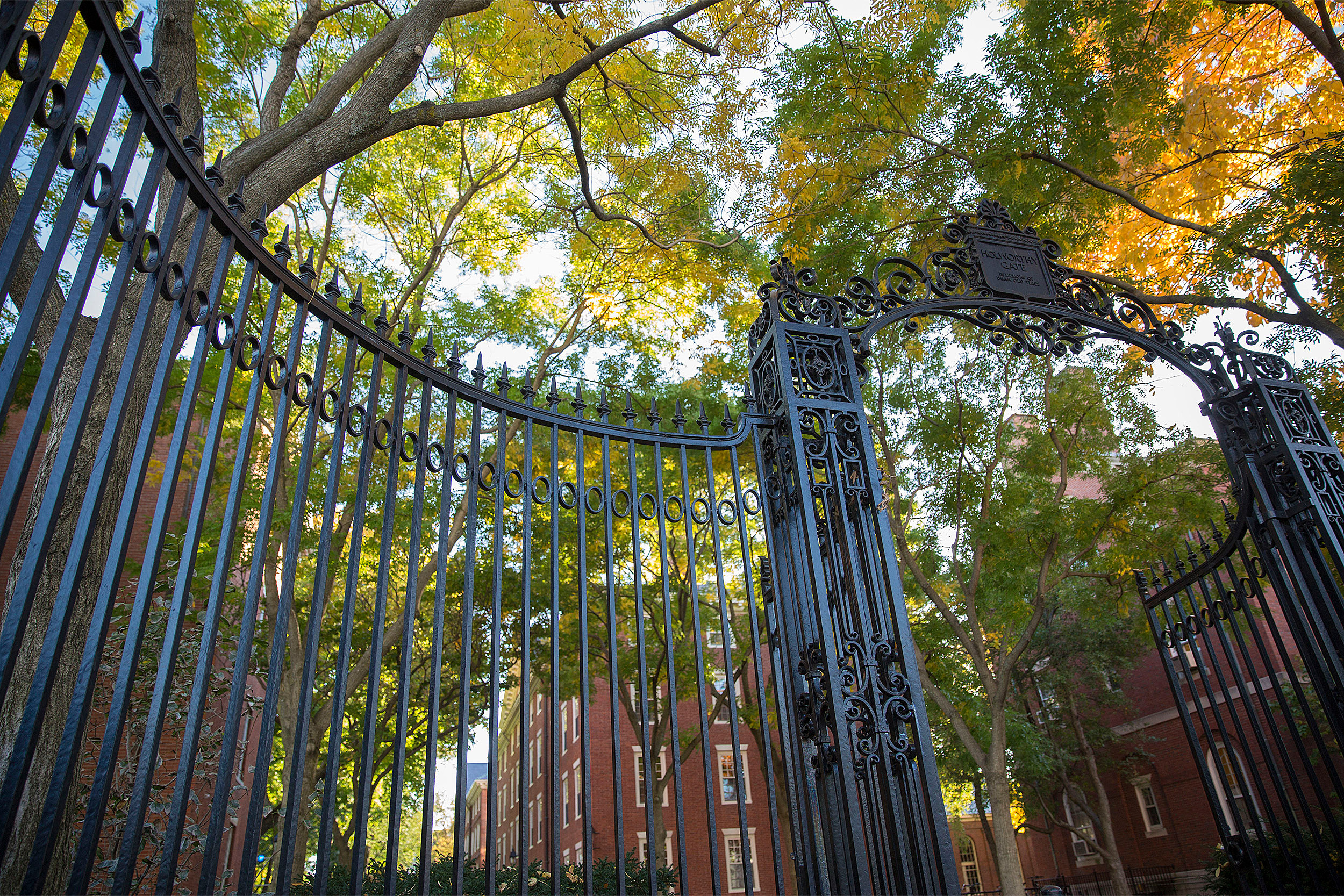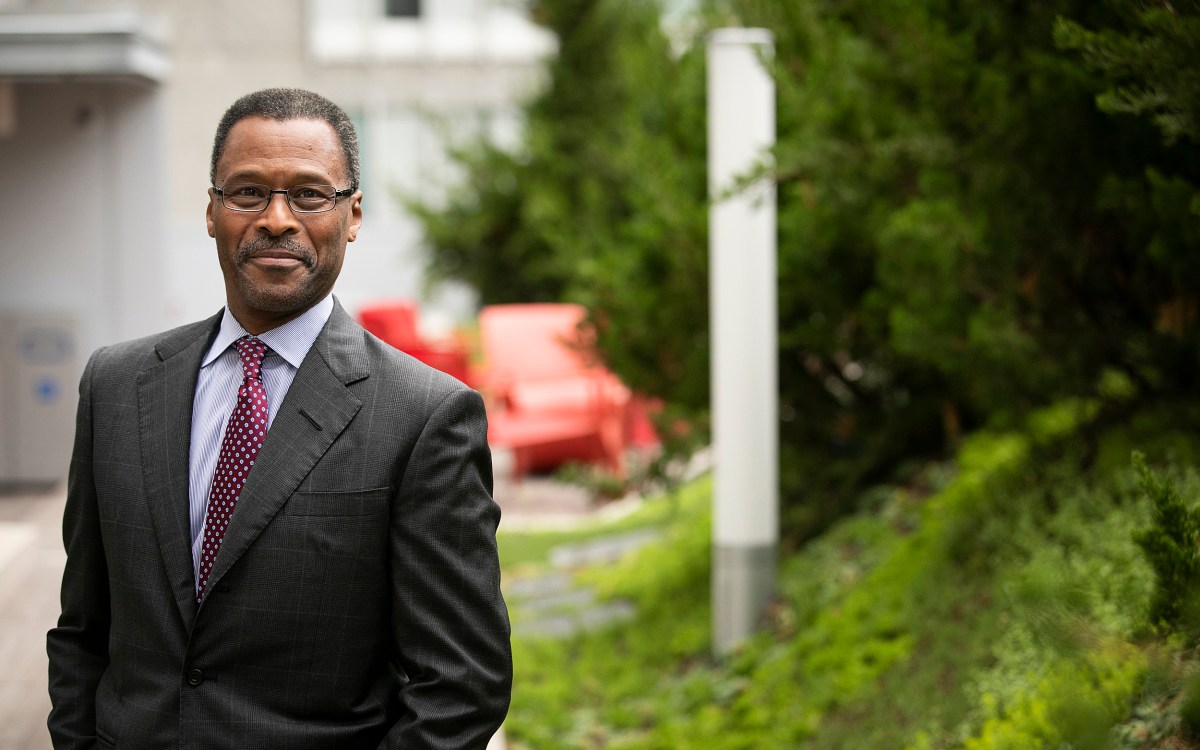
The Faculty of Arts and Sciences will hire a cluster of faculty in the area of ethnicity, indigeneity, and migration during the upcoming academic year, Dean Claudine Gay announced.
Kris Snibbe/Harvard file photo
FAS announces ethnicity, indigeneity, and migration positions
Faculty positions will cross divisions, with a focus on Latinx, Asian American, and Muslim fields
The Faculty of Arts and Sciences (FAS) will hire a cluster of faculty in the area of ethnicity, indigeneity, and migration during the upcoming academic year, Dean Claudine Gay announced.
The hire of at least three to four cross-divisional scholars is a priority for Gay, who envisions the group as a first step in growing both faculty and scholarship across FAS in these fields. The new positions, in Asian American, Latinx, and Islam in America/Muslim American areas, will complement planned hires in other departments in the divisions of social science and arts and humanities.
“During the last few years we have been building our research and teaching strength in these areas — with key faculty recruitments in Native American studies, for example — and this search is an opportunity to accelerate our efforts with a set of hires that we hope will be bold, field-defining and intellectually synergistic,” said Gay. “Ethnicity, indigeneity, and migration provides a valuable lens for understanding contemporary American society. It is no wonder that there is strong student and faculty interest in having this area more fully represented in our scholarly community, including in our curriculum. In fact, I imagine the candidates’ lecture series itself, which we hope all interested faculty and students will attend, will be a catalyzing intellectual moment for the FAS — and, perhaps, for this field more generally.”
Dean of Arts and Humanities Robin Kelsey and Dean of Social Science Lawrence D. Bobo will co-lead the effort, and are currently assembling a search committee to be co-chaired by Mayra Rivera, chair of the Committee on Ethnicity, Migration, Rights (EMR), and Mary C. Waters, John L. Loeb Professor of Sociology. Gay charged Rivera and Waters as necessary leadership that she hopes will, ultimately, inspire a new concentration in ethnicity and migration.
Said Bobo: “This is an enormously exciting development, and one that will position us to move forward confidently in developing the kind of strength we need in ethnicity, indigeneity, and migration. These hires will assure that senior faculty are present and provide the intellectual leadership and agenda-setting we need to build a successful program.”
“Ethnicity, indigeneity, and migration provides a valuable lens for understanding contemporary American society.”
Claudine Gay, FAS dean
Equally enthusiastic was Kelsey, who called the interdivisional nature of the search committee “highly unusual, if not unprecedented.” The benefits, he noted, are three-fold. “This acknowledges that much of the work in ethnic studies straddles arts and humanities and the social sciences. It also lays the groundwork for greater cooperation going forward,” he said. “Finally, the lines separating divisions are inevitably somewhat arbitrary and we can’t let them impede us as we pursue our intellectual objectives. This gives us the latitude to seek excellence wherever it may be found, whether it’s someone whose trained in sociology, literary studies, the history of music, or some other field.”
Alice Cheng ’20, a member of the student-and-alumni group Harvard Ethnic Studies Coalition (HESC) who is concentrating in economics with a secondary in EMR, called the development “very exciting” but stressed the need for structure in Ethnic Studies.
“We are a little cautious because Harvard bureaucracy is very slow, and we want to make sure these faculty are hired into a supportive structure that compensates faculty for their program-building work, something that we have not yet been promised,” said the Winthrop House resident. “But we’re also optimistic that eventually, through these cohort hires and building a supportive structure, there can be a robust pathway for ethnic studies for undergrads.”
Liren Ma ’20 looks forward to attending the lecture series and meeting the candidates. Said the 22-year-old, who is studying sociology and statistics with a secondary in EMR and a member of HESC, “The primary goal in any push for ethnic studies has been for raw resources for new scholars and new courses. That is at the heart of it is what everyone wants. Personally, I’m most invested in Asian American Studies scholarship, but in terms of the broad movement, no particular field matters more than [any] other. It’s about building robust options for everyone in all the tracks.”
And that, Kelsey said, is what makes the undertaking so consequential.
“Ethnic studies should look different at Harvard,” he said. “From my perspective, as we conduct this search and move forward afterward, we will be seeking a way for Harvard to put a distinctive stamp on it. And we seek to do that not because it’s important in itself, but because no place can bring to ethnic studies the range of expertise we can.”






